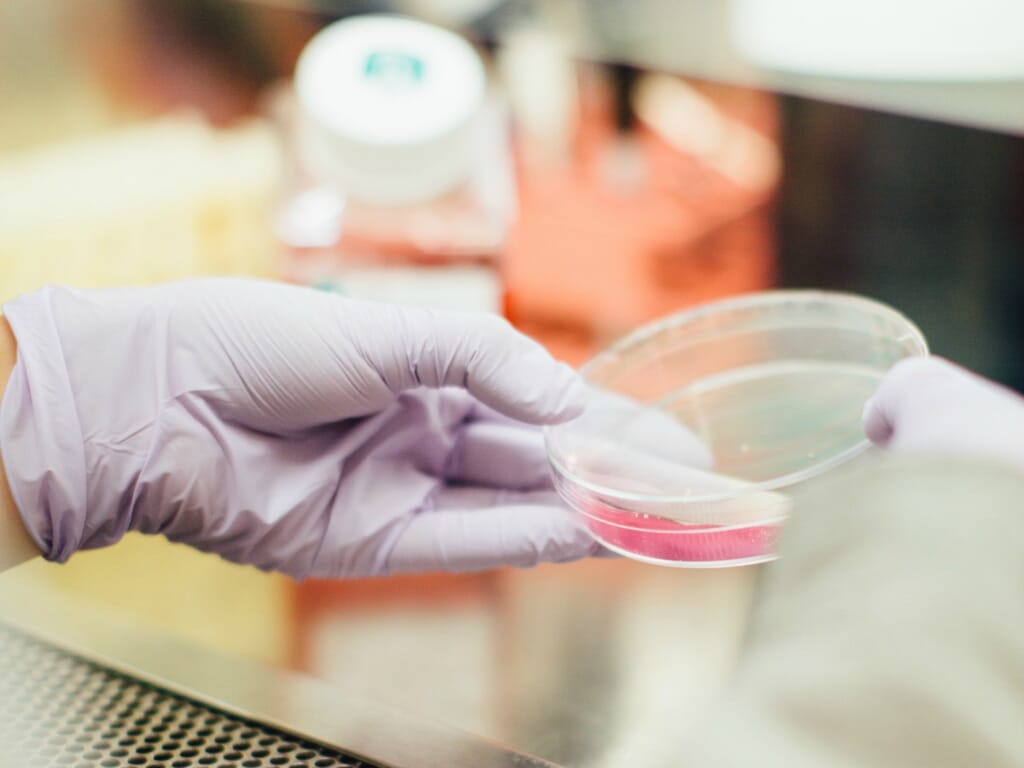- News & views
- 07 November 2017
New research helps explain why menopause can lead to weight gain

Scientists have moved one step closer to understanding why menopause increases the susceptibility to weight gain, insulin resistance, and the risk for diabetes and cardiovascular disease.
A new paper, published in Cell Metabolism, provides an explanation as to why loss of oestrogen due to menopause or surgery alters a woman’s metabolism and increases the risk for diseases that stem from metabolic imbalance.
While there has been evidence for some time that oestrogen modulates metabolism in different ways, this is the first time a potential explanation for this has been found.
The research, conducted by scientists at East Carolina University, centred on the role of oestrogen in mitochondrial function.
Mitochondria are the engines of the cell, turning energy from food into a form that the cell can use. The new research shows that oestrogen is a component of the mitochondrial membrane, and that its presence improves the efficiency of mitochondrial function.
One of the things the scientists discovered was that oestradiol, the main female sex hormone, can get incorporated into mitochondrial membranes.
Once there, it makes the membrane more fluid, allowing the mitochondria to operate more efficiently. If you lose this efficiency, this results in insulin resistance, and weight gain.
Researcher Dr. Maria Torres said: “The loss of oestrogen brings problems in metabolism, and if we replace it through hormone therapy it helps, but it’s not the most suitable treatment for every woman.
“So we wanted to answer the question of what oestrogen is doing to our metabolism on a molecular basis. What’s happening when it’s gone, what’s happening when it’s put back, and how is it affecting our metabolism?”
The findings move away from previous understandings of the role of oestrogen in metabolism, which didn’t acknowledge that the hormone exerts functions independently of oestrogen receptors, altering the biophysical properties of the mitochondrial membrane.
According to Dr. Torres, the research could help develop improved treatments and therapies for menopausal women.
She said: “Menopausal hormone therapies are used with caution, as they have certain risks, and are not suitable for every woman.
“Understanding exactly how these hormones modulate bioenergetics is key for the development of safer, and potentially tissue-specific pharmacological interventions, to prevent metabolic imbalance.”
Page last updated November 2017
Scientists have moved one step closer to understanding why menopause increases the susceptibility to weight gain, insulin resistance, and the risk for diabetes and cardiovascular disease.
A new paper, published in Cell Metabolism, provides an explanation as to why loss of oestrogen due to menopause or surgery alters a woman’s metabolism and increases the risk for diseases that stem from metabolic imbalance.
While there has been evidence for some time that oestrogen modulates metabolism in different ways, this is the first time a potential explanation for this has been found.
The research, conducted by scientists at East Carolina University, centred on the role of oestrogen in mitochondrial function.
Mitochondria are the engines of the cell, turning energy from food into a form that the cell can use. The new research shows that oestrogen is a component of the mitochondrial membrane, and that its presence improves the efficiency of mitochondrial function.
One of the things the scientists discovered was that oestradiol, the main female sex hormone, can get incorporated into mitochondrial membranes.
Once there, it makes the membrane more fluid, allowing the mitochondria to operate more efficiently. If you lose this efficiency, this results in insulin resistance, and weight gain.
Researcher Dr. Maria Torres said: “The loss of oestrogen brings problems in metabolism, and if we replace it through hormone therapy it helps, but it’s not the most suitable treatment for every woman.
“So we wanted to answer the question of what oestrogen is doing to our metabolism on a molecular basis. What’s happening when it’s gone, what’s happening when it’s put back, and how is it affecting our metabolism?”
The findings move away from previous understandings of the role of oestrogen in metabolism, which didn’t acknowledge that the hormone exerts functions independently of oestrogen receptors, altering the biophysical properties of the mitochondrial membrane.
According to Dr. Torres, the research could help develop improved treatments and therapies for menopausal women.
She said: “Menopausal hormone therapies are used with caution, as they have certain risks, and are not suitable for every woman.
“Understanding exactly how these hormones modulate bioenergetics is key for the development of safer, and potentially tissue-specific pharmacological interventions, to prevent metabolic imbalance.”
Page last updated November 2017


